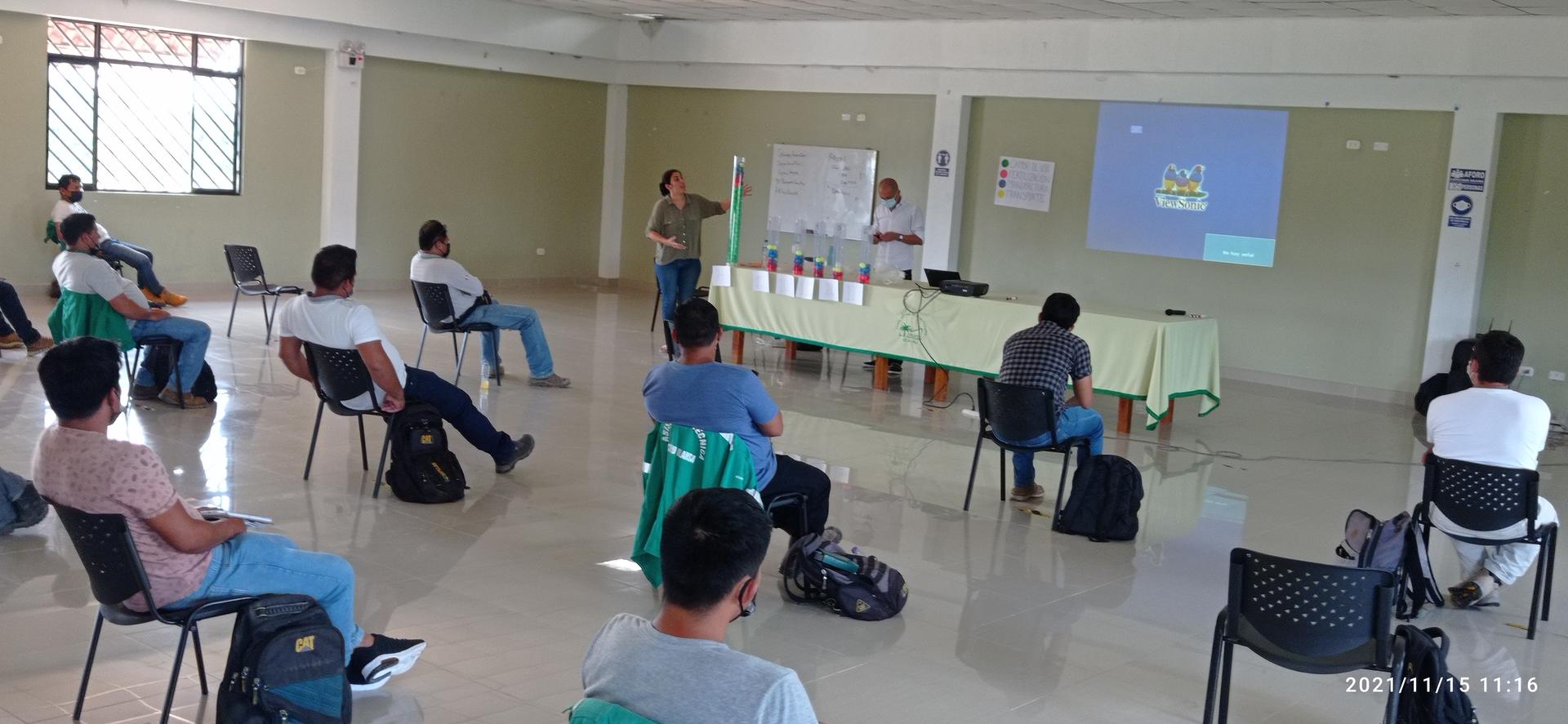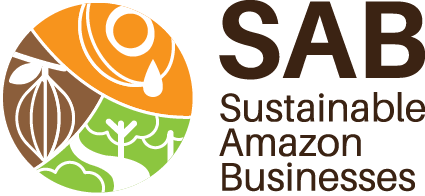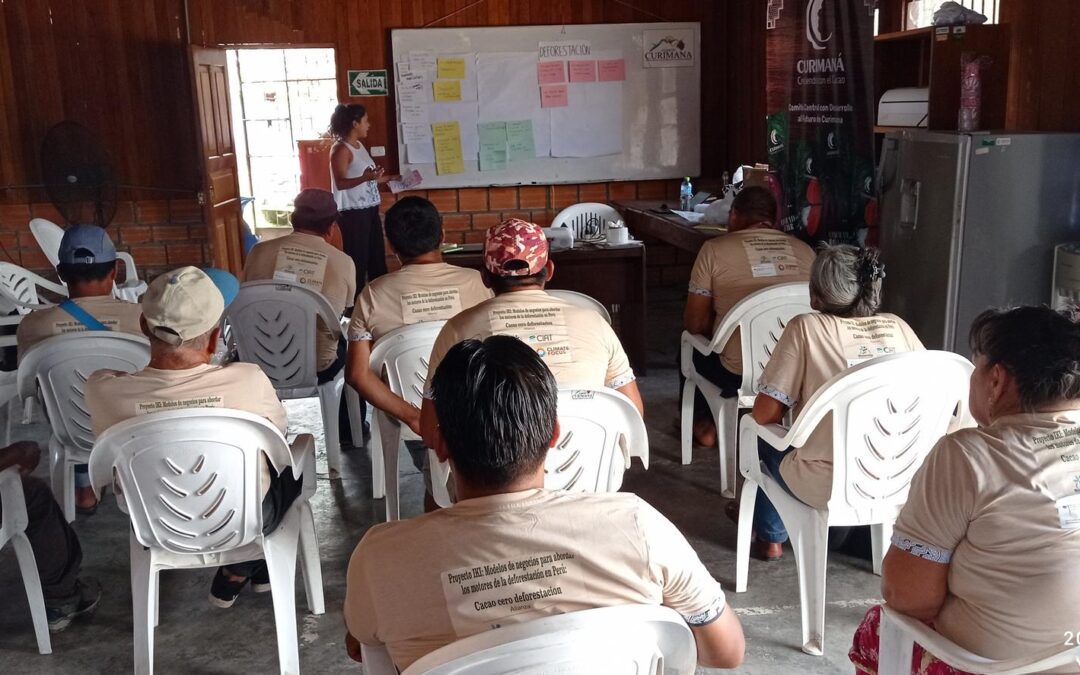The climate change mitigation strategies to produce organic cocoa and oil palm will provide an opportunity to reduce GHG emissions, while being more competitive and sustainable.
Training workshops were held on 15-–17 November for extension workers and cocoa and palm oil producers from the Central Committee for the Future Development of Curimaná (Curimaná), Oleaginosas Amazónicas S.A. (Olamsa), and the Central Committee of Palm Producers in Ucayali (Concepu) in Peru. These small producer organizations and processing company have been implementing business models with zero deforestation and low emissions, developed within the framework of the Sustainable Amazon Businesses project. This project is led by the Alliance of Bioversity International and CIAT, with Climate Focus as the implementing partner. It is part of the International Climate Initiative (IKI, its German initials), supported by the German Federal Ministry for the Environment, Nature Conservation, and Nuclear Safety (BMU, its German initials).
The extension workers from the technical areas of Curimaná, Olamsa, and Concepu learned what is the carbon footprint of processing 1 kg of fresh fruit bunches (FFB) of oil palm and 1 kg of dry cocoa beans.

Miguel Romero, Research Fellow from the Multifunctional Landscapes Research Area at the Alliance, prepared a GHG emissions balance for the predominant oil palm and cocoa production systems in the Ucayali region. The study shows that for low-intensity oil palm production systems (11 t FFB/ha) without changes in land use, GHG emissions amount to 0.09 kg CO₂eq/kg FFB, while for a high-intensity system (25 t FFB/ha) without changes in land use, emissions represent 0.19 kg CO₂eq/kg FFB. However, if emissions from land-use changes are taken into consideration, a low-intensity production system emits 2.94 kg CO₂eq/kg FFB, while a high-intensity system emits 1.44 kg CO₂eq/kg FFB.
On the other hand, the study on the carbon footprint of cocoa production shows that an organic cocoa production system without changes in land use emits 0.87 kg CO₂eq/kg dry cocoa beans, while a high-tech conventional system without changes in land use emits 2.45 kg CO₂eq/kg dry cocoa beans. When including land-use changes, the organic system increases its emissions to 34.44 kg CO₂eq/kg dry cocoa beans, while the high-tech conventional system reaches 20.61 kg CO₂eq/kg dry cocoa beans. The balance of emissions in the production stage allowed researchers to identify critical activities within the process and be able to outline mitigation strategies. The mitigation measures identified feature the implementation of agroforestry systems, the optimization of fertilizer and soil amendment applications, as well as the promotion of planting in areas of low ecological value.
Piedad Pareja, Research Associate at the Multifunctional Landscapes Research Area indicates that “Preventing deforestation and shifting the establishment of oil palm and cocoa towards already intervened or degraded areas is the most impactful strategy to mitigate climate change.”
Oil palm and cocoa producers attended awareness-raising workshops on the effects of climate change, mitigation strategies, and the importance of forest conservation. Small producers acknowledge forestry goods and services that benefit their daily life. Thus, in the face of anthropic interventions affecting forest areas, cocoa and oil palm producers identified changes in climate (temperature increase), water cycle (lower water quantity and quality), soil degradation affecting their production areas, and the reduction of resources, such as animals to hunt and medicinal plants.
Deforestation represents a major problem for the Ucayali region. The Peruvian Ministry for the Environment reported 47,267 hectares of forest lost during 2020, the highest figure reported in the last 19 years. While oil palm and cocoa do not account for total deforestation, their production is located in agricultural frontier areas, where it is necessary to design and Implement strategies for a deforestation-free and low-GHG-emissions production.
The SAB project works jointly with Curimaná (organic cocoa) and Olamsa-Concepu (oil palm and its derivatives) on the implementation of deforestation-free business models low in GHG emissions. Through this project, pilot business models are being developed to show they are economically profitable, ready for investment, and socially inclusive.

